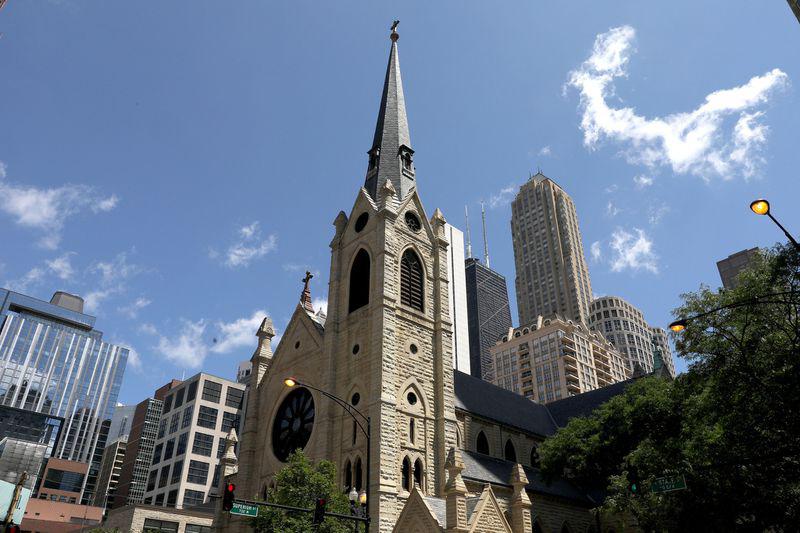|
Chicago Catholic parishes got as much as $63 million in federal PPP coronavirus money
By David Heinzmann
Roman Catholic parishes and organizations in the Archdiocese of Chicago received between $24.4 million and $63.6 million in loans through the federal government’s Paycheck Protection Program that was designed to save jobs amid the economic shutdown caused by the COVID-19 pandemic, according to federal records. The money was mostly applied for by individual parishes, so archdiocese officials said they did not immediately know the total of money received here. The Archdiocese of Chicago itself did not apply for funds because it is a large employer with thousands of employees, many more than the threshold of 500 staff laid out by the PPP program, spokeswoman Paula Waters said. Since the federal data on who received PPP money was released this week, public scrutiny has mounted on some deep-pocketed corporate interests that received millions from the forgivable loan program. The Associated Press found that the U.S. Roman Catholic Church used a special and unprecedented exemption from federal rules to amass at least $1.4 billion in taxpayer-backed coronavirus aid, with many millions going to dioceses that have paid huge settlements or sought bankruptcy protection because of clergy sexual abuse cover-ups. Some large and relatively prosperous parishes — such as Saints Faith, Hope & Charity in Winnetka and St. Benedict’s on the North Side — received larger loans because the formula for applying was driven by payroll and utility cost size, Waters said. “Here’s what they applied for: 2½ times your monthly payroll and a set formula for utilities,” she said. “So, some big parishes got a lot of money.” St. Benedict’s, in the North Center neighborhood, appeared to have received the largest loan of any parish — between $1 million and $2 million for the parish and school, according to the federal records. Saints Faith, Hope & Charity received between $150,000 and $350,000 for the parish and another $350,000 to $1 million for its school, according to the records. Both parishes operate large schools. Officials at those parishes could not immediately be reached for comment Friday. Waters said that Catholic parishes were caught in a bind by the pandemic because they were mandated by law to keep teaching children in their schools even as the shutdown of churches abruptly disrupted revenue from the Sunday collection plate. Tuition does not cover all the costs of running a Catholic school, she said, so parish schools depend heavily on weekly donations at Mass. “Our offertory took a very big hit, and a lot of our parishes didn’t even have online giving set up,” when the government-ordered shutdown began in March, she said. “So the money stopped and we were obligated to keep operating our schools. … It was very important to keep our schools open, so we’re grateful for any help we get.” Some parishes also got money that was not captured by the disclosure this week because the government did not release data on loans smaller than $150,000. Based on the relatively small size of its payroll, St. Columbanus Church in the Park Manor neighborhood received $80,000 for the parish and $130,000 for the parish school, Augustus Tolton Catholic Academy. St. Columbanus’ pastor, the Rev. Matthew O’Donnell, said he would have lost all six parish employees and 18 school employees without the assistance. In addition to losing revenue from donations at Mass, the parish runs a 70-team basketball league and relies heavily on concessions and ticket sales from the games to makes ends meet. When the league shut down, so did the revenue. Meanwhile, the work did not dissipate. O’Donnell and his staff streamed Masses and daily spiritual guidance messages online. The parish also operates a food pantry that routinely served 400 families a week before the pandemic, he said. Demand for food and clothing from the program increased significantly during the shutdown. “Typically, we serve the 60619 and 60637 ZIP codes. During the pandemic we started serving anyone who came to us,” he said. “There was definitely an uptick in first time people coming to our food pantry.” Contact: dheinzmann@chicagotribune.com
|
.
Any original material on these pages is copyright © BishopAccountability.org 2004. Reproduce freely with attribution.
